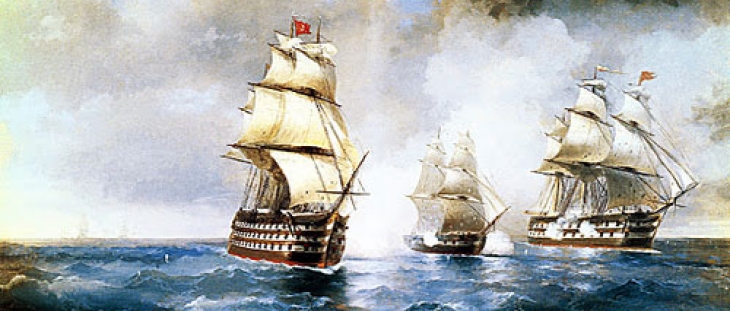
There’s something a little depressing about the fact that this week’s conversation about the future of art and entertainment has been dominated by–ugh–distribution models. Whether it was the endless chatter over Louis CK’s experiment in selling a comedy special by himself for $5, or the outrage over a Slate column that suggested that Amazon is better for the book business than local indie shops, it seems the world is suddenly far more interested in infrastructure than it is intertext. But then, this is the state of things in 2011. If the latter half of the twentieth century was a meta, navel-gazing conversation about the nature of art itself, then the twenty-first century’s digital shift has gone meta on the meta and made it about how the spread of art is changing. Particularly for those who make their livelihoods in media, my grumpy disdain is uncharitable, I know. There are very legitimate concerns about the ways in which people buy, make and find art and entertainment. The trouble is, I’m not sure the conversation is actually going anywhere, caught as it is in conservative stalwarts and oblivious futurists. Take the Slate column by Farhad Manjoo. In it, Manjoo argues that Amazon is actually better for reading culture because of more vetted user reviews, a wider selection, cheaper prices and–in an apparent benefit to Manjoo–that it’s more economically efficient. Ditch your local bookseller, he says, because there is no such thing as local books anyway. I’m all for knocking the indie bookstore off its too-vaunted perch a bit, but Manjoo’s argument is mostly nonsense. The small bookshop is as much a place for local literary communities to gather as it is to sell books, and particularly those in big cities–like local store Typebooks–form an important meeting point between small publishers, authors and their audiences. To say Amazon is better for reading culture is like saying Walmart is better for shoppers: it’s true in one way, but it’s a tiny, misleading fragment of the overall situation. But the reactions of many, like this response in Flavourwire or those scattered around Toronto’s Twitter scene, seem just as oblivious, clinging as they always do to arguments about the authenticity, human interaction and community. Sure, they’re all perfectly reasonable arguments, but they do nothing to address a broad, global shift in the economic structure of selling books and commerce in general except for saying “hey book lovers, do what you know is right?” At no point is anyone discussing models that eschew the predatory, big-box mentality of Amazon and the economically inefficient, possibly-obsolete model of the indie seller. This is all to say nothing of rethinking the book itself or its importance as the locus of intellectualism. It’s a similar situation with talk around Louis CK. On the surface, the comedian’s capacity to sell a comedy show that anyone can copy or burn to a DVD for $5 is remarkable, especially since it was no mere experiment; he made $200,000 in profit by Tuesday. But as a model for the future of media, it’s about as useful as Radiohead’s experiment a few years ago. What an established, popular media entity can achieve is little measure of either the way to sell media or how people will react to new models when they become mainstream. The thing is, we already know what beats piracy, and it isn’t price alone: it’s convenience, too. It’s the idiot-proof, click-without-thinking nature of Netflix that got me and few million other people to close their Bittorrent clients. And if everyone were to do what Louis CK and Radiohead did, you’d be stuck with the problem we have now: too much stuff and what Clay Shirky quite rightly calls filter failure. How to discover, aggregate and organize art and entertainment if and when all artists sell their work directly is a problem no-one has solved except, depressingly, established players like Apple and Netflix. The fundamental problem is that the interests of those who sell media and those who consume it are constantly at odds. What we as consumers want is choice, freedom to do with art what we please and hopefully some way to sort through the flood. What sellers want is to retain a centralized, controlled distribution system based on archaic interpretations of copyright, ownership and commerce. They just don’t fit. The future of media is not indie book sellers or a direct relationship between artists and fans, and, hopefully, it’s not Amazon either. None of those solutions is ideal because if they’re good for sellers, they’re not good for creators, and if they’re good for consumers, they’re not good for sellers. We are, historically speaking, nearing a breaking point in which the web as distribution mechanism threatens to break both ends of the commercial chain; digital’s capacity for distribution, remixing and its always-on access promise to upend the very bases of capitalist commerce–and nowhere near enough people are thinking about what replaces it. To side with either the futurists who wish to turn all media into a hyper-commercial entity driven by the logic of the market, or the conservatives who wish to bury their heads in the sand and fight to keep things as they are, is to cling to one half of a sinking ship. Sure, there may be some things on board worth clinging on to for when we land upon the Lost-style island of mystery waiting for us, but it’s going down all the same. And while it’s undoubtedly important to reject silly arguments like Manjoo’s and fight against the commoditization of culture, clinging to the debris that’s left is no solution either.














